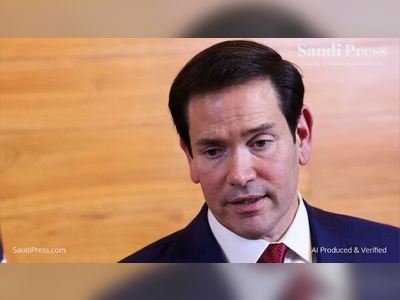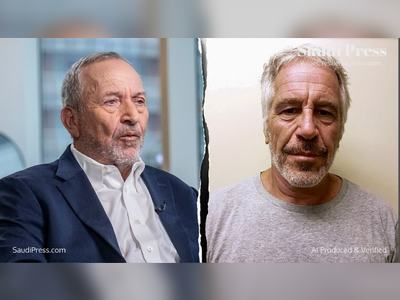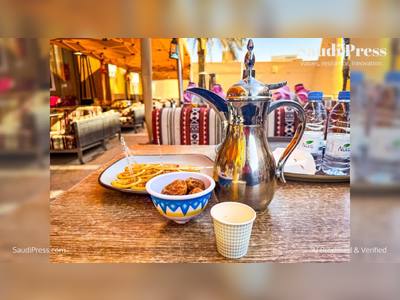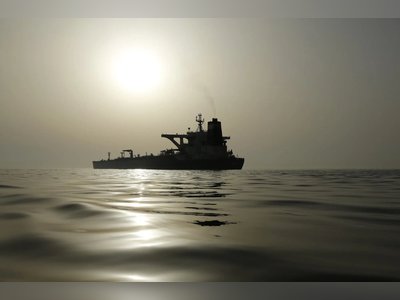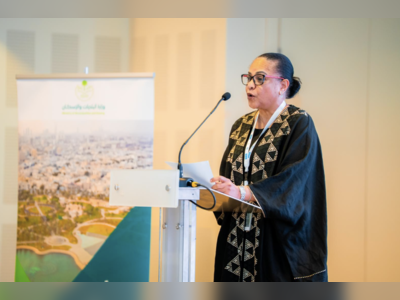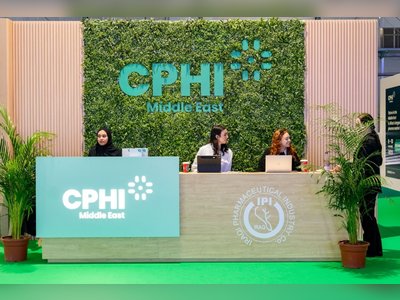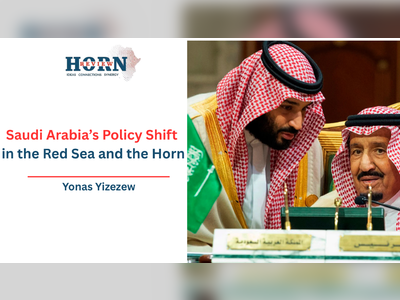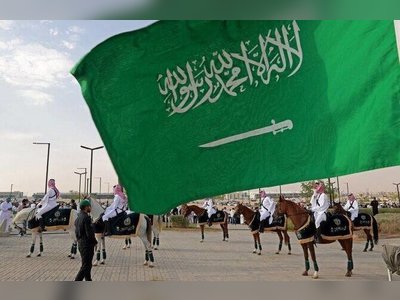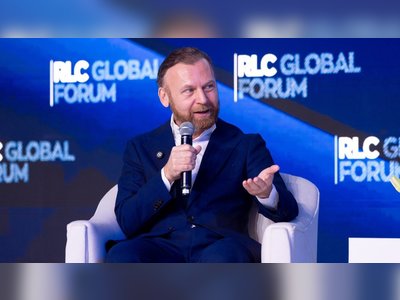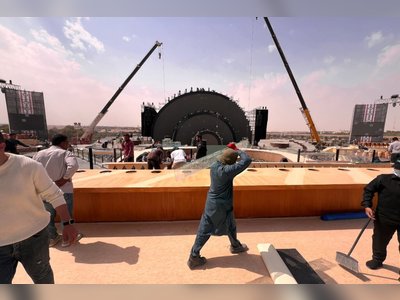
Saudi and Emirati Religious Moderation Inspires Few Beyond Their Borders
Saudi Arabia and the United Arab Emirates (UAE) have drawn praise for social reforms that have domestically reduced the role of religion in public life, enhanced women’s rights, and, in the case of the UAE, catered to non-Muslim lifestyles.
Yet, Saudi and Emirati efforts to position their countries as the Muslim world’s beacons of an autocratic notion of moderate Islam have done little to encourage moderation beyond their borders, despite a radical cutback in decades-long global Saudi funding for the spread of an ultra-conservative interpretation of Islam and the Emirates’ trumpeting of notions of tolerance.
The geographic limits of Saudi and Emirati moderation are evident in the housing projects of France, the Rohingya refugee camp at Bangladesh’s Cox Bazar, and in Pakistan, where Prime Minister Imran Khan appears to be reinforcing a religious ultra-conservatism that has long been woven into the fabric of society with Saudi assistance.
Until the rise of Crown Prince Mohammed bin Salman (MBS), Saudi-funded ultra-conservatives fed on feelings of marginalization, disenfranchisement, and alienation in housing projects in French cities populated primarily by Muslim immigrants and their French-born descendants.
“At the risk of simplifying a bit, one could argue that from the mid-1990s onward, the rise of Islamist violence in France that culminated with the terror wave of 2015-2016 was essentially a Salafi undertaking,” said Marc Weitzmann, the author of a recent essay on the debate in France about violence and the country’s Muslim minority.
Weitzmann appeared to implicitly acknowledge that his assessment did not also hold French discriminatory policies and societal attitudes responsible. The combination of Saudi funding, Islamist agitation, and French policy created a toxic brew in an environment of increasing anti-Muslim, anti-migrant sentiment, and populist xenophobia that allowed the UAE to align its obsessive campaign against political Islam with the domestic and geopolitical aspirations of French President Emmanuel Macron.
With an election scheduled for April, in which the president’s strongest challengers are likely to be right-wing xenophobes, Macron has accused the Muslim Brotherhood and Salafists of Islamist “separatism” and “supremacy” for allegedly seeking to introduce an Islamic legal code that would supersede French law.
“An unintentional consequence of targeting innocent French Muslims is the further marginalization of a minority group already on the fringes of society, “ cautioned Tanzila Jamal, a political science undergraduate.
Similarly, militants of the Arakan Rohingya Salvation Army (ARSA) alongside criminal gangs are gaining ground in Bangladesh’s Cox’s Bazar, home to about a million refugees from Myanmar who have nothing to look forward to.
Like their French brethren, little short of practical life-improving solutions will stop Rohingya refugees from finding solace in religious militancy and ultra-conservatism, and persuade them that Islamic moderation has anything to offer.
To be sure, Saudi Arabia and the UAE have donated millions of dollars for humanitarian aid to the Rohingya. But with a potential civil war looming a year after a military coup in Myanmar, humanitarian aid alone is unlikely to stop the wound in Cox’s Bazar from festering. Yet, Myanmar does not rank among the top recipients of aid in a just published report on Saudi humanitarian and development aid.
Published by the King Faisal Center for Research and Islamic Studies (KFCRIS), the report, “Why the World Needs Partnership with Saudi Arabia: Saudi Arabia’s Global Humanitarian and Development Aid,” intends to fill a gap created by what it sees as a failure of the media and international aid platforms to highlight the kingdom’s contribution.
Arguably the country most impacted by decades of Saudi support for ultra-conservatism, Pakistan, a country with a complex relationship to secularism and religiosity, appears to be traveling down a road that the kingdom and the UAE are exiting.
Pakistani Prime Minister Khan emphasizes the role of Islam in education and the clamping down on alleged blasphemy, an issue that often sparks mob violence in the South Asian nation, while Saudi Arabia and the UAE have sought to reduce the role religion plays in national identity and public life.
After introducing a singular national education curriculum that substantially increases religious content, and creating a body to monitor the curriculum and watch for blasphemous content on social media, Khan last week identified corruption and explicit sexual content on the Internet as the main threats facing Pakistani and Muslim youth.
In doing so, he ignored the real issues confronting youth in multiple Muslim-majority countries: a lack of quality education that prepares students for a 21st century labor market, the absence of an intellectual and social environment that truly encourages creative and independent thinking, and a dearth of professional prospects for many young Pakistanis.
To be fair, in an encouraging development, Pakistan’s top judicial commission this week nominated by a narrow five-to-four vote, a female judge to the supreme court for the first time in the country’s history.
Khan has long made corruption a signature issue, but recently leaked documents suggest that members of his cabinet and their families as well as some of his financial backers and military officers have parked millions of dollars in secretly owned offshore companies.
Khan himself was not shown to have offshore holdings. Nonetheless, in an online meeting last week with Islamic scholars, Khan, focusing on Islam’s earliest years, appeared to argue that securing societal ethics and morals were a prerequisite for the fight against corruption.
The online gathering’s participants were primarily prominent proponents of an autocratic and/or right-wing nationalist’s notion of moderate Islam and traditionalist scholars. They essentially excluded voices advocating jurisprudential and theological reforms that would embrace human rights and fundamental freedoms.
Among the participants were UAE-backed clerics Abdullah bin Bayyah and Hamza Yusuf; Recep Senturk, who is believed to be close to Turkish President Recept Tayyip Erdogan; renowned traditionalist thinker Seyyed Hossein Nasr and his Malaysian student, Osman Bakar; and Chandra Muzaffar, a controversial Malaysian scholar, former Islamist politician, and activist.
Khan’s “discourse sounded surreal given the nature of the problems faced by Muslim-majority countries. The prime ministerial observations and questions during the discussion revealed a narrow world outlook. In fact, such views can be taken as symptomatic of all that has caused the backwardness of Muslim countries,” said Pakistani columnist Zahid Hussain.
Decrying the gap in social and economic development between Muslim countries and the rest of the world, Hussain cautioned that “obscurantism only accentuates our backwardness. The youth, which now comprises the majority of the Muslim world’s population, need education, freedom of expression and thinking that can equip them to compete with the rest of the world.”
Neither Saudi Arabia nor the UAE embrace fundamental freedoms, including the freedom of expression. On the contrary. Their human rights records are badly tarnished. Nonetheless, demonstrably nudging Pakistan to embrace educational reform and counter law-of-the jungle social militancy, even if only in line with an autocratic definition of religious moderation, and helping provide troubled communities with prospects beyond mere survival, would constitute a step forward. Potentially, it would enhance the two Gulf states’ competing efforts to be icons of a restrictive form of moderation and leadership of the Muslim world.
The geographic limits of Saudi and Emirati moderation are evident in the housing projects of France, the Rohingya refugee camp at Bangladesh’s Cox Bazar, and in Pakistan, where Prime Minister Imran Khan appears to be reinforcing a religious ultra-conservatism that has long been woven into the fabric of society with Saudi assistance.
Until the rise of Crown Prince Mohammed bin Salman (MBS), Saudi-funded ultra-conservatives fed on feelings of marginalization, disenfranchisement, and alienation in housing projects in French cities populated primarily by Muslim immigrants and their French-born descendants.
“At the risk of simplifying a bit, one could argue that from the mid-1990s onward, the rise of Islamist violence in France that culminated with the terror wave of 2015-2016 was essentially a Salafi undertaking,” said Marc Weitzmann, the author of a recent essay on the debate in France about violence and the country’s Muslim minority.
Weitzmann appeared to implicitly acknowledge that his assessment did not also hold French discriminatory policies and societal attitudes responsible. The combination of Saudi funding, Islamist agitation, and French policy created a toxic brew in an environment of increasing anti-Muslim, anti-migrant sentiment, and populist xenophobia that allowed the UAE to align its obsessive campaign against political Islam with the domestic and geopolitical aspirations of French President Emmanuel Macron.
With an election scheduled for April, in which the president’s strongest challengers are likely to be right-wing xenophobes, Macron has accused the Muslim Brotherhood and Salafists of Islamist “separatism” and “supremacy” for allegedly seeking to introduce an Islamic legal code that would supersede French law.
“An unintentional consequence of targeting innocent French Muslims is the further marginalization of a minority group already on the fringes of society, “ cautioned Tanzila Jamal, a political science undergraduate.
Similarly, militants of the Arakan Rohingya Salvation Army (ARSA) alongside criminal gangs are gaining ground in Bangladesh’s Cox’s Bazar, home to about a million refugees from Myanmar who have nothing to look forward to.
Like their French brethren, little short of practical life-improving solutions will stop Rohingya refugees from finding solace in religious militancy and ultra-conservatism, and persuade them that Islamic moderation has anything to offer.
To be sure, Saudi Arabia and the UAE have donated millions of dollars for humanitarian aid to the Rohingya. But with a potential civil war looming a year after a military coup in Myanmar, humanitarian aid alone is unlikely to stop the wound in Cox’s Bazar from festering. Yet, Myanmar does not rank among the top recipients of aid in a just published report on Saudi humanitarian and development aid.
Published by the King Faisal Center for Research and Islamic Studies (KFCRIS), the report, “Why the World Needs Partnership with Saudi Arabia: Saudi Arabia’s Global Humanitarian and Development Aid,” intends to fill a gap created by what it sees as a failure of the media and international aid platforms to highlight the kingdom’s contribution.
Arguably the country most impacted by decades of Saudi support for ultra-conservatism, Pakistan, a country with a complex relationship to secularism and religiosity, appears to be traveling down a road that the kingdom and the UAE are exiting.
Pakistani Prime Minister Khan emphasizes the role of Islam in education and the clamping down on alleged blasphemy, an issue that often sparks mob violence in the South Asian nation, while Saudi Arabia and the UAE have sought to reduce the role religion plays in national identity and public life.
After introducing a singular national education curriculum that substantially increases religious content, and creating a body to monitor the curriculum and watch for blasphemous content on social media, Khan last week identified corruption and explicit sexual content on the Internet as the main threats facing Pakistani and Muslim youth.
In doing so, he ignored the real issues confronting youth in multiple Muslim-majority countries: a lack of quality education that prepares students for a 21st century labor market, the absence of an intellectual and social environment that truly encourages creative and independent thinking, and a dearth of professional prospects for many young Pakistanis.
To be fair, in an encouraging development, Pakistan’s top judicial commission this week nominated by a narrow five-to-four vote, a female judge to the supreme court for the first time in the country’s history.
Khan has long made corruption a signature issue, but recently leaked documents suggest that members of his cabinet and their families as well as some of his financial backers and military officers have parked millions of dollars in secretly owned offshore companies.
Khan himself was not shown to have offshore holdings. Nonetheless, in an online meeting last week with Islamic scholars, Khan, focusing on Islam’s earliest years, appeared to argue that securing societal ethics and morals were a prerequisite for the fight against corruption.
The online gathering’s participants were primarily prominent proponents of an autocratic and/or right-wing nationalist’s notion of moderate Islam and traditionalist scholars. They essentially excluded voices advocating jurisprudential and theological reforms that would embrace human rights and fundamental freedoms.
Among the participants were UAE-backed clerics Abdullah bin Bayyah and Hamza Yusuf; Recep Senturk, who is believed to be close to Turkish President Recept Tayyip Erdogan; renowned traditionalist thinker Seyyed Hossein Nasr and his Malaysian student, Osman Bakar; and Chandra Muzaffar, a controversial Malaysian scholar, former Islamist politician, and activist.
Khan’s “discourse sounded surreal given the nature of the problems faced by Muslim-majority countries. The prime ministerial observations and questions during the discussion revealed a narrow world outlook. In fact, such views can be taken as symptomatic of all that has caused the backwardness of Muslim countries,” said Pakistani columnist Zahid Hussain.
Decrying the gap in social and economic development between Muslim countries and the rest of the world, Hussain cautioned that “obscurantism only accentuates our backwardness. The youth, which now comprises the majority of the Muslim world’s population, need education, freedom of expression and thinking that can equip them to compete with the rest of the world.”
Neither Saudi Arabia nor the UAE embrace fundamental freedoms, including the freedom of expression. On the contrary. Their human rights records are badly tarnished. Nonetheless, demonstrably nudging Pakistan to embrace educational reform and counter law-of-the jungle social militancy, even if only in line with an autocratic definition of religious moderation, and helping provide troubled communities with prospects beyond mere survival, would constitute a step forward. Potentially, it would enhance the two Gulf states’ competing efforts to be icons of a restrictive form of moderation and leadership of the Muslim world.
